Song of the Two Crows by Hayden Carruth
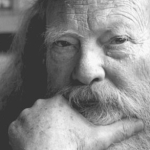
I sing of Morrisville
(if you call this cry
a song). I
(if you call this painful
voice by that great name)
sing the poverty of my
region and of
the wrong end of Morrisville.
Read Poem (if you call this cry
a song). I
(if you call this painful
voice by that great name)
sing the poverty of my
region and of
the wrong end of Morrisville.
0
from The Seasons: Winter by James Thomson

See, Winter comes to rule the varied year,
Sullen and sad, with all his rising train—
Vapours, and clouds, and storms. Be these my theme,
These, that exalt the soul to solemn thought
And heavenly musing. Welcome, kindred glooms!
Congenial horrors, hail! With frequent foot,
Pleas’d have I, in my cheerful morn of life,
When nurs’d by careless solitude I liv’d
And sung of Nature with unceasing joy,
Pleas’d have I wander’d through your rough domain;
Trod the pure virgin-snows, myself as pure;
Heard the winds roar, and the big torrent burst;
Or seen the deep-fermenting tempest brew’d
In the grim evening-sky. Thus pass’d the time,
Till through the lucid chambers of the south
Read Poem Sullen and sad, with all his rising train—
Vapours, and clouds, and storms. Be these my theme,
These, that exalt the soul to solemn thought
And heavenly musing. Welcome, kindred glooms!
Congenial horrors, hail! With frequent foot,
Pleas’d have I, in my cheerful morn of life,
When nurs’d by careless solitude I liv’d
And sung of Nature with unceasing joy,
Pleas’d have I wander’d through your rough domain;
Trod the pure virgin-snows, myself as pure;
Heard the winds roar, and the big torrent burst;
Or seen the deep-fermenting tempest brew’d
In the grim evening-sky. Thus pass’d the time,
Till through the lucid chambers of the south
0
The Birth-day by Mary Robinson
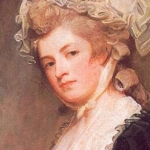
Here bounds the gaudy, gilded chair,
Bedecked with fringe and tassels gay;
The melancholy mourner there
Pursues her sad and painful way.
Here, guarded by a motley train,
The pampered Countess glares along;
There, wrung by poverty and pain,
Read Poem Bedecked with fringe and tassels gay;
The melancholy mourner there
Pursues her sad and painful way.
Here, guarded by a motley train,
The pampered Countess glares along;
There, wrung by poverty and pain,
0
Howl by Allen Ginsberg

For Carl Solomon I
I saw the best minds of my generation destroyed by madness, starving hysterical naked,
Read Poem I saw the best minds of my generation destroyed by madness, starving hysterical naked,
0
If It Were Not for You by Hayden Carruth

Liebe, meine liebe, I had not hoped
to be so poor
The night winds reach
like the blind breath of the world
in a rhythm without mind, gusting and beating
as if to destroy us, battering our poverty
and all the land’s flat and cold and dark
under iron snow
Read Poem to be so poor
The night winds reach
like the blind breath of the world
in a rhythm without mind, gusting and beating
as if to destroy us, battering our poverty
and all the land’s flat and cold and dark
under iron snow
0
The Four Ages of Man by Anne Bradstreet

[Introduction]
Lo now! four other acts upon the stage,
Childhood, and Youth, the Manly, and Old-age.
The first: son unto Phlegm, grand-child to water,
Unstable, supple, moist, and cold’s his Nature.
The second: frolic claims his pedigree;
From blood and air, for hot and moist is he.
The third of fire and choler is compos’d,
Vindicative, and quarrelsome dispos’d.
The last, of earth and heavy melancholy,
Solid, hating all lightness, and all folly.
Childhood was cloth’d in white, and given to show,
His spring was intermixed with some snow.
Upon his head a Garland Nature set:
Of Daisy, Primrose, and the Violet.
Read Poem Lo now! four other acts upon the stage,
Childhood, and Youth, the Manly, and Old-age.
The first: son unto Phlegm, grand-child to water,
Unstable, supple, moist, and cold’s his Nature.
The second: frolic claims his pedigree;
From blood and air, for hot and moist is he.
The third of fire and choler is compos’d,
Vindicative, and quarrelsome dispos’d.
The last, of earth and heavy melancholy,
Solid, hating all lightness, and all folly.
Childhood was cloth’d in white, and given to show,
His spring was intermixed with some snow.
Upon his head a Garland Nature set:
Of Daisy, Primrose, and the Violet.
0
Ghana Calls by W. E. B. Du Bois

Dedicated to Kwame Nkrumah I was a little boy, at home with strangers.
I liked my playmates, and knew well,
Read Poem I liked my playmates, and knew well,
0
Holy Thursday: Is this a holy thing to see by William Blake
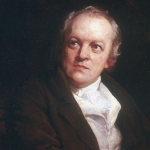
Is this a holy thing to see,
In a rich and fruitful land,
Babes reducd to misery,
Fed with cold and usurous hand?
Is that trembling cry a song?
Can it be a song of joy?
And so many children poor?
It is a land of poverty!
And their sun does never shine.
And their fields are bleak &bare.
And their ways are fill'd with thorns.
It is eternal winter there.
Read Poem In a rich and fruitful land,
Babes reducd to misery,
Fed with cold and usurous hand?
Is that trembling cry a song?
Can it be a song of joy?
And so many children poor?
It is a land of poverty!
And their sun does never shine.
And their fields are bleak &bare.
And their ways are fill'd with thorns.
It is eternal winter there.
0
What Shall We Tell Our Children? An Addenda, 1973 by Margaret Burroughs
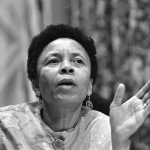
A lot of water has passed under the bridge since 1963. Then, my concernwas particularly for my own people and this version was written especially for them. I am happy that it has done and is doing its job. However, I want it to be known, that I am not a proponent of the concept of cultural nationalism. I dearly love and am proud of my good, serious, sincere black people, yet at the same time, my concern is with all people of goodwill no matter the color. I make no mystique of blackness. I am a humanist. Indeed, I am auniversalist. This truth, I know. The liberation of black people in the United States is tightly linked with the liberation of black people in the far flungdiaspora. Further, and more important, the liberation of black and oppressed people all over the world, is linked with the struggles of the workers of the world of every nationality and color against the common oppressors, overlords, and exploiters of their labor.
Thus it was only natural that I should write "What Shall We Tell Our Children?" in 1973. I have tried to tell them the facts of life and the truth as I see it:
I hope I have succeeded.
What shall we tell our children who are black?
What shall we tell our children who are white?
What shall we tell children of every race and hue?
For all children are the children of all of us
Read Poem Thus it was only natural that I should write "What Shall We Tell Our Children?" in 1973. I have tried to tell them the facts of life and the truth as I see it:
I hope I have succeeded.
What shall we tell our children who are black?
What shall we tell our children who are white?
What shall we tell children of every race and hue?
For all children are the children of all of us
0
The Oppressionists by Jayne Cortez
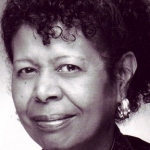
Art
what do the art
suppressors
care about art
they jump on bandwagons
wallow in press clips
& stink up the planet
with their
Read Poem what do the art
suppressors
care about art
they jump on bandwagons
wallow in press clips
& stink up the planet
with their
0
There It Is by Jayne Cortez

My friend
they don't care
if you're an individualist
a leftist a rightist
a shithead or a snake
They will try to exploit you
absorb you confine you
disconnect you isolate you
Read Poem they don't care
if you're an individualist
a leftist a rightist
a shithead or a snake
They will try to exploit you
absorb you confine you
disconnect you isolate you
0
And Now She Has Disappeared in Water by Diane Wakoski

For Marilyn who died in January april 1
Read Poem 0
“Oh could I raise the darken’d veil” by Nathaniel Hawthorne
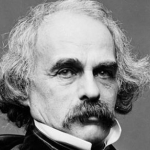
Oh could I raise the darken’d veil,
Which hides my future life from me,
Could unborn ages slowly sail,
Before my view—and could I see
My every action painted there,
To cast one look I would not dare.
There poverty and grief might stand,
And dark Despair’s corroding hand,
Would make me seek the lonely tomb
To slumber in its endless gloom.
Then let me never cast a look,
Within Fate’s fix’d mysterious book.
Read Poem Which hides my future life from me,
Could unborn ages slowly sail,
Before my view—and could I see
My every action painted there,
To cast one look I would not dare.
There poverty and grief might stand,
And dark Despair’s corroding hand,
Would make me seek the lonely tomb
To slumber in its endless gloom.
Then let me never cast a look,
Within Fate’s fix’d mysterious book.
0
Nosce Teipsum: of Human Knowledge by John Davies

Why did my parents send me to the schools
That I with knowledge might enrich my mind?
Since the desire to know first made men fools,
And did corrupt the root of all mankind.
Read Poem That I with knowledge might enrich my mind?
Since the desire to know first made men fools,
And did corrupt the root of all mankind.
0
from Laon and Cythna; or The Revolution of the Golden City by Percy Bysshe Shelley

To Mary — — 1.
0
“I Broke the Spell That Held Me Long” by William Cullen Bryant
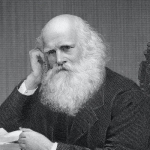
I broke the spell that held me long,
The dear, dear witchery of song.
I said, the poet’s idle lore
Shall waste my prime of years no more,
For Poetry, though heavenly born,
Consorts with poverty and scorn.
I broke the spell–nor deemed its power
Could fetter me another hour.
Ah, thoughtless! how could I forget
Its causes were around me yet?
For wheresoe’er I looked, the while,
Was Nature’s everlasting smile.
Still came and lingered on my sight
Read Poem The dear, dear witchery of song.
I said, the poet’s idle lore
Shall waste my prime of years no more,
For Poetry, though heavenly born,
Consorts with poverty and scorn.
I broke the spell–nor deemed its power
Could fetter me another hour.
Ah, thoughtless! how could I forget
Its causes were around me yet?
For wheresoe’er I looked, the while,
Was Nature’s everlasting smile.
Still came and lingered on my sight
0
Book 6, Epigram 30 by Thomas Bastard

Upon the plain as I rode all alone,
Assaulted by two sturdy lads I was;
I am a poor man Sires, let me be gone.
Nay, but ye shall be poor before ye pass.
And so I was: yet lost nothing thereby.
Would they had robbed me of my poverty.
Read Poem Assaulted by two sturdy lads I was;
I am a poor man Sires, let me be gone.
Nay, but ye shall be poor before ye pass.
And so I was: yet lost nothing thereby.
Would they had robbed me of my poverty.
0
The Acts of Youth by John Wieners
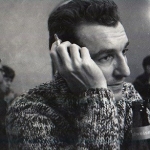
And with great fear I inhabit the middle of the night
What wrecks of the mind await me, what drugs
to dull the senses, what little I have left,
what more can be taken away?
The fear of travelling, of the future without hope
or buoy. I must get away from this place and see
that there is no fear without me: that it is within
unless it be some sudden act or calamity
Read Poem What wrecks of the mind await me, what drugs
to dull the senses, what little I have left,
what more can be taken away?
The fear of travelling, of the future without hope
or buoy. I must get away from this place and see
that there is no fear without me: that it is within
unless it be some sudden act or calamity
0
Kora in Hell: Improvisations XI by William Carlos Williams
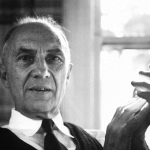
XI
1
Why pretend to remember the weather two years back? Why not? Listen close then repeat after others what they have just said and win a reputation for vivacity. Oh feed upon petals of edelweiss! one dew drop, if it be from the right flower, is five years’ drink!
_______________
Having once taken the plunge the situation that preceded it becomes obsolete which a moment before was alive with malignant rigidities.
2
When beldams dig clams their fat hams (it’s always beldams) balanced near Tellus’s hide, this rhinoceros pelt, these lumped stone—buffoonery of midges on a bull’s thigh—invoke,—what you will: birth’s glut, awe at God’s craft, youth’s poverty, evolution of a child’s caper, man’s poor inconsequence. Eclipse of all things; sun’s self turned hen’s rump.
Cross a knife and fork and listen to the church bells! It is the harvest moon’s made wine of our blood. Up over the dark factory into the blue glare start the young poplars. They whisper: It is Sunday! It is Sunday! But the laws of the country have been stripped bare of leaves. Out over the marshes flickers our laughter. A lewd anecdote’s the chase. On through the vapory heather! And there at banter’s edge the city looks at us sidelong with great eyes—lifts to its lips heavenly milk! Lucina, O Lucina! beneficent cow, how have we offended thee?
________________
Hilariously happy because of some obscure wine of the fancy which they have drunk four rollicking companions take delight in the thought that they have thus evaded the stringent laws of the county. Seeing the distant city bathed in moonlight and staring seriously at them they liken the moon to a cow and its light to milk.
0
As the Dead Prey Upon Us by Charles Olson

As the dead prey upon us,
they are the dead in ourselves,
awake, my sleeping ones, I cry out to you,
disentangle the nets of being!
I pushed my car, it had been sitting so long unused.
I thought the tires looked as though they only needed air.
But suddenly the huge underbody was above me, and the rear tires
were masses of rubber and thread variously clinging together
Read Poem they are the dead in ourselves,
awake, my sleeping ones, I cry out to you,
disentangle the nets of being!
I pushed my car, it had been sitting so long unused.
I thought the tires looked as though they only needed air.
But suddenly the huge underbody was above me, and the rear tires
were masses of rubber and thread variously clinging together
0